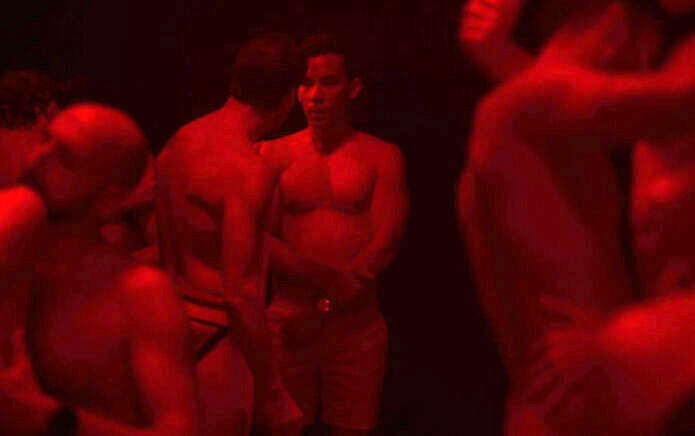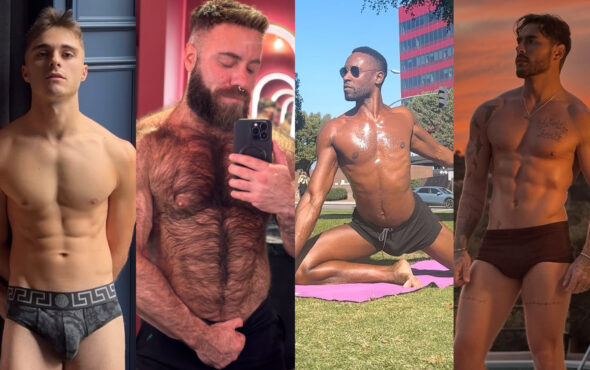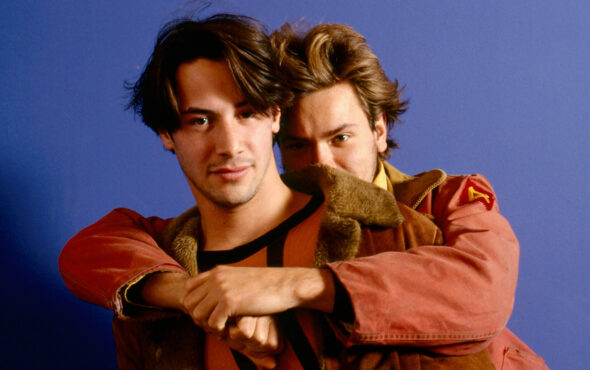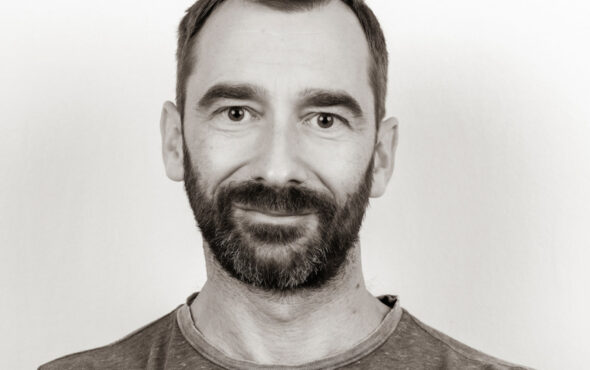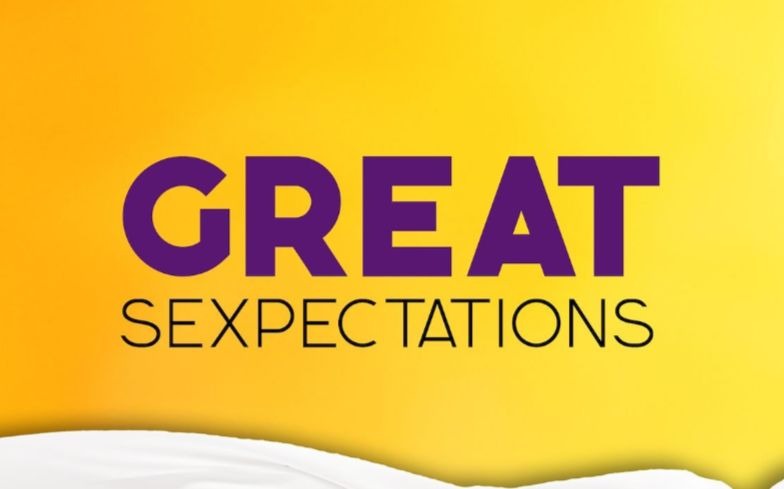
Have you ever expressed some form of disappointment in your sex life? Did you feel like you didn’t perform well enough, or you just left the experience wishing it’d been different? The chances are you probably answered yes to one of those questions. And if you’re wondering what to do about it, then Great Sexpectations could be the book for you.
Great Sexpectations is written by Gemma Cribbs, a straight sex therapist and clinical psychologist and James Findlay, an award-winning gay sex journalist, and together they delve into why we’ve formed ‘sexpectations’ for how our sexual lives should be, and guide you through simple exercises to help you discover your authentic sexual self and rectify unhelpful beliefs and behaviours.
Split into three parts, the book examines the history of sex, how common present-day sexpectations have formed our sexpectations and then how to strip these away, from both a heterosexual perspective and an LGBTQ+ one.
“So much of the sex education we grew up with had a heterosexual focus, leaving out LGBTIQ+ people, meaning they didn’t receive any sexual health and relationships education at all,” explains one of the book’s co-authors, James Findlay. “When we talk about sex and relationships, we need to take a whollistic approach.”

And the book doesn’t just focus around sex, with it also giving advice on deep breathing ways to start a morning, or just better ways to understand your partner. GAY TIMES caught up with James to discuss the release of the book, the most harmful sexpectations for LGBTQ+ people, and the pitfalls that young LGBTQ+ people should avoid when researching sex on the internet.
"Pushing your feelings away and not being yourself is forever harmful."
What were the motivations behind wanting to create this book?
In our work, Gemma and I were coming across people having the same issues in their sex lives and identities time and time again. We knew we needed to write something that allowed people to understand why they struggle and be comfortable with themselves. If you’re aware of and comfortable with who you are, who you’re into, and what you’re into, you’d be surprised how it can positively affect other aspects of your life.
How important do you think it is for the book to not just solely focus on heterosexual sex?
It’s incredibly important because there is a growing number of people who don’t identify as heterosexual. Research is finding more and more people – young people in particular – are identifying as ‘not heterosexual’, so to create a book that only focused on hetero sex would have been irrelevant to many. So much of the sex education we grew up with had a heterosexual focus, leaving out LGBTIQ+ people, meaning they didn’t receive any sexual health and relationships education at all. When we talk about sex and relationships, we need to take a whollistic approach.
The book can be seen to give advice in just starting your mornings right, or understanding your partner better. Was that always the intention, or did it just evolve as you wrote?
We intended the book to have something for everyone. We are all on different timelines when it comes to understanding our sexuality and understanding ourselves. We wanted to make sure the book would be interesting and helpful to a broad range of people, wherever they were on the spectrum of sexuality or how in touch with their sexuality they currently feel.
What do you think are the most harmful sexpectations for LGBTQ+ people?
Gosh, where do we start. I’ll keep it simple. The most harmful sexpectation LGBTQ+ people face is the sexpectation of heteronormativity which stops us from acceptance of who we are. Because heterosexuality is still assumed, many people who don’t identify as such struggle to be honest about their sexuality, still experience trauma while ‘coming out’ and are confused about the type of relationship they’d like to have. Pushing your feelings away and not being yourself is forever harmful. In the book, we look into what causes this Sexpectation as well as others, why they’re so harmful to us, and what we can do about them.
How do you think society has failed LGBTQ+ people in regards to developing their sexpectations?
We could spend a lot of time going into the different reasons why we have been ‘failed’ by society, but if we narrow it down, I would say shame is to blame. Whether your shame has come from your parents, the TV shows you watched growing up, or the religion you were exposed to, shame creates a huge barrier to accepting who you are. Whether it’s shame in being bi, shame in being non-binary, shame in having a open relationship, shame has a lot to answer for. It stops us being our honest selves. Shame can even have a negative impact on our enjoyment of sex. If we can’t talk with a partner about how we reach orgasm, or what turns us on then we are very unlikely to have a great time in bed!
"It would be great for the research to catch up with the current evolution of people’s sexual and gender identities and also for there to be books that disseminate this information to the general public."
What advice would you give an LGBTQ+ person if they feel their sexpecations aren’t being met?
Well, sexpectations are in your head, often absorbed from previous experiences and the society around you. They may, or may not, be aligned with what you truly want in your sex life. So, coming to an understanding of what sexpectations you hold and if they are helpful for you starts with tuning in to your body, understanding your desires, and comparing them to your sexpectations. When you find out what you TRULY want, you then need to communicate your needs kindly to your partner.
As a gay man who had to learn about sex through the internet, if the new sex education curriculum isn’t effective, what pitfalls should LGBTQ+ people avoid when searching the internet for advice?
With anything you look for on the internet make sure you get your information from reputable sources. Remember that porn is just porn; it isn’t a realistic portrayal of what sex is or should be (all the time).
You write in the authors’ note that the research you came across didn’t allow for non-cis identities, would you be interested in a second book that could explore this? And if so, would you write it alongside a trans or non-binary individual?
Unfortunately research that involves non-cis people is still in its infancy. Many of the studies that we found only used samples of heterosexual identifying people. It would be great for the research to catch up with the current evolution of people’s sexual and gender identities and also for there to be books that disseminate this information to the general public. It would also be great if non-binary people could write from their own experience as we have done. Also, people from different cultures, ethnicities and backgrounds. We all have different stories to tell, and it’s important we tell them.
How do you hope this book will help LGBTQ+ people in their relationships and sexual lives?
Ideally, I’d love Great Sexpectations to liberate our readers and allow them to have REALLY great sex! I’d love readers to come away from the book and either take that next step in accepting their sexuality and themselves, to be closer to their partner (or close to themselves!), to try that kink they’ve always been curious about, or maybe just help the reader understand what turns them on and gets them off better. I believe there’s something in this book for everyone, no matter where you are on the sexuality spectrum, the gender spectrum, or the spectrum of sexual experience. I hope this book brings us together (in a whole lot of ways!).
Great Sexpectations is available now for purchase.
